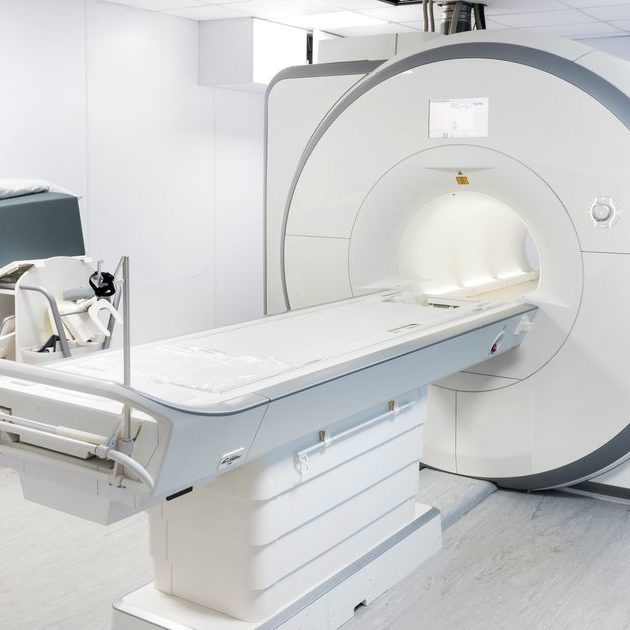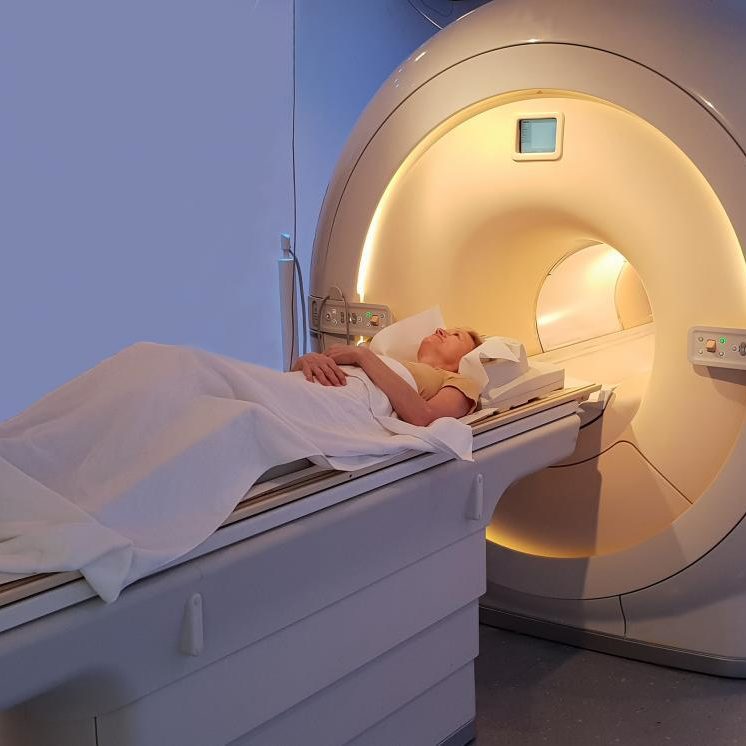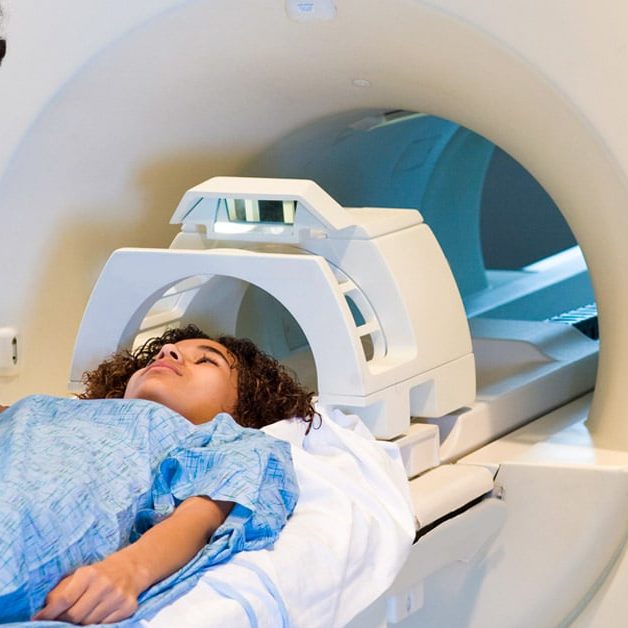What to expect from a private MRI Scan in London

Patients who opt for a private MRI scan in London can expect a hassle-free and efficient experience. The clinic's state-of-the-art equipment enables same-day scanning, so patients can receive their results quickly and efficiently. The comprehensive reports provided by the clinic's experienced neurologists detail the findings of the MRI scan and any relevant recommendations for further treatment.
Our patients can receive a CD of their MRI scan images, which can be easily shared with your GP or any other medical specialist involved in your care. This helps to ensure that patients receive the appropriate treatment as quickly as possible.
No Referral Needed
You can book a full MRI Scan without requiring a referral.
Competitive Pricing
Depending on the hours (peak/off-peak).
Same-week Appointments
Appointments are available if you require a scan for the same week.
Superior Quality Scanners
High-imaging Open MRI scans and Upright MRI scans available
CHOOSE
Your Plan
Disk Space
Databases
Users
Email Accounts
Bandwidth
Support
Price
standard
mri scan, including cd
results within 24 hours
Call Today
enhanced
mri scan, including cd
results within 24 hours
CONSULTATION WITH NEUROLOGISTS WITHIN 1 - 2 DAYS
£1,300
advanced
initial consultation with neurologist
mri scan, including cd
results within 24 hours
follow-up consulttion with neurologist
(same day*/Following Day)
£1,600
*subject to availability

What is an MRI scan?
An MRI scan, or Magnetic Resonance Imaging scan, is a non-invasive medical imaging technique that uses strong magnetic fields and radio waves to produce detailed images of the body's internal structures. MRI scans are particularly useful for examining the brain, spinal cord, and other soft tissues. During the scan, the patient lies on a table that slides into a cylindrical scanner. The scanner creates a strong magnetic field around the body, which causes the hydrogen atoms in the body's tissues to align themselves. Radio waves are then used to disrupt this alignment, causing the hydrogen atoms to emit signals that are picked up by the scanner and used to create detailed images of the body's internal structures.
An MRI scan can be used to examine almost any part of the body, including the:
- brain and spinal cord
- bones and joints
- breasts
- heart and blood vessels
- internal organs, such as the liver, womb or prostate gland
The results of an MRI scan can be used to help diagnose conditions, plan treatments and assess how effective previous treatment has been.
Our prices for private MRI scans in London are competitive and depend on when you would like your scan, and how quickly you require it.
If you suffer from claustrophobia, we provide MRI scans that enable you to be upright or in an open MRI scan.
Once the scan has been completed, your report and CD will be returned. With your consent, the report can slo be shared with your GP within 2 days.
How does a private MRI scan work?
Our bodies have a high composition of hydrogen atoms (found in water), resulting in hydrogen being found all over the body. These atoms realign at different speeds and produce different signals .
As signals are produced throughout the body, diseased or damaged tissue also produces a different signal. This allows the scanner to tell the difference between different tissue types and detect damaged or diseased tissue.
There are strong magnets in a MRI scanner that creates a magnetic field. This magnetic field is what causes the hydrogen atoms in your body to align in the same direction.
Radio waves are then passed into the part of the body being scanned, causing the hydrogen atoms to move our of alignment. When the radio waves are turned off, the hydrogen atoms realign and produce radio signals.
These signals are then transmitted to receivers, that generates images on a computer from the information collected.


What happens during an MRI scan?
Before the scan, you will be asked to change into a hospital gown and lie down on the table, The table will then slide you into the MRI scanner, which looks like a tube. Depending on the part of your body that is being scanned, your head may remain inside or outside the tunnel.
The table will not move during the scan and nothing will come into contact with you. You may also experience some warmth during the scan.
When in the scanner, you are able to communicate with the radiographer through the intercom. There is usually a panic button that you can press if you're feeling claustrophobic or start to feel unwell.
After enough images have been obtained, the table will slide out of the tunnel, and you can go and get dressed.
The machine makes very loud, knocking noises so you will be provided with earplugs or headphones to protect your hearing.
You may be given an injection of a dye that makes some scans easier to read. You may be also be required to hold your breath while some images are being taken.
How do I prepare for a private MRI scan in London?
Dementech Neurosciences, a leading London neurology and MRI clinic, is a renowned medical centre that specialises in neurological disorders. We provide leading expertise in private MRI scans and advanced imaging techniques that aid in the accurate diagnosis of various neurological conditions. As a leading institution in the field, we offer state-of-the-art MRI scans in London that use cutting-edge technology to produce detailed images of the brain, spinal cord, and other soft tissues. Our team of highly skilled neurologists work together to interpret the results of these scans, providing patients with accurate and timely diagnoses. With our focus on patient-centred care and commitment to utilising the latest technology, Dementech Neurosciences is the premier destination for individuals seeking private MRI scans in London.
The magnetic field used in MRI scanning can affect some metal objects, causing a safety hazard due to the metal moving, heating up or malfunctioning if electronic. They can also affect the MRI images.
Therefore, it is important to tell your doctor if you have any internal metal devices or implants in your body. There is usually a form that you have to fill in prior to the test that will specifically ask if you have any implanted metal objects or devices.
Metal objects may include:
- metal clips on blood vessels in your brain;
- a pacemaker or implanted defibrillator;
- a surgically implanted joint/pin;
- artificial heart valves;
- a deep brain stimulator;
- a cochlear implant;
- magnetic dental implants;
- drug infusion devices;
- an intrauterine contraceptive device (IUD); or
- any metal foreign bodies in your eyes or elsewhere, such as body modification implants and piercings, bullets or shrapnel.
You will also be asked to not wear any makeup or hairspray on the day of the scan, as these products may contain tiny metallic particles that could lead to problems with the scan.
Bear in mind there are implants that do not cause problems during MRI scanning – your doctor or radiographer will be able to work out whether or not it is safe for you to have an MRI.
All jewellery, hearing aids, watches and removable dental work will need to be removes. Some wigs contain traces of metal, so these also need to be removed. Some tattoos contain traces of metal (this is usually fine) so the tattooed skin may feel slightly warm during the scan.

Frequently Asked Questions
CAN I EAT OR DRINK BEFORE AN MRI?
For some scans, such as scans of the abdomen and pelvis, you may be asked to restrict food and drink for a few hours before the test. For others you may be asked to drink a certain amount of water before the test.
MRI scans of the brain or chest areas don’t usually require any special dietary preparation.
If you take regular medication, you should take your medicines as normal unless your doctor has specifically told you not to.
DOES AN MRI SCAN HURT?
MRI scans themselves are painless. However, depending on your condition, you may experience some discomfort or pain from lying in one position for the duration of the scan. The radiographer will work with you to get the most comfortable position possible.
Sometimes medicines or contrast (dye) need to be given through a vein for the test. If this is the case, you’ll need to have a cannula (small tube) inserted in your hand or arm using a small needle. Cannula insertion can be painful, but the pain only lasts a few seconds.
HOW QUICKLY CAN I BE SEEN?
We endeavour to see you in the same week of your enquiry, if possible.
WILL I GET A COPY OF MY TEST RESULTS?
Yes, you will get a copy of your results as well as a CD of the MRI scan on request
WHAT ARE THE RISKS OF AN MRI SCAN?
MRI scanning is generally considered to be safe – there is no exposure to radiation and the scan itself has no known harmful effects for most people.
Sometimes people who have had an injection of contrast dye may have an allergic reaction to the dye. In most cases allergic reactions are mild, and in the case of a more severe allergic reaction, you can be given medication to treat it.
People with kidney problems may be at risk of complications related to the gadolinium contrast medium (dye) that may be used during an MRI. Your doctor may recommend having a blood test before the MRI to assess your kidney function.
It has recently been found that a very small amount of some forms of gadolinium contrast medium sometimes remain in the body after the scan. The contrast medium is mainly retained in the bones and tiny amounts in the brain. There are currently no known side effects associated with retained contrast, but radiographers and radiologists are careful to only use contrast when it is needed to make a diagnosis.
If you have any metal objects in your body, this can be a safety hazard during MRI scanning due to the metal heating up, moving, or electronic or mechanical devices malfunctioning. It’s important that your doctor and radiographer are aware of any metal implants or devices that you have, to determine whether it is safe for you to have an MRI.
HOW LONG DOES THE SCAN TAKE?
The MRI scan may take from 10 to 90 minutes, depending on the type of scan you are having and the number of images taken. You will be told beforehand approximately how long your scan will take.
IS AN MRI SAFE FOR PREGNANT WOMEN?
The effects of MRI scanning on a developing fetus are not completely known.
While there have been no reported birth defects resulting from MRI scanning during pregnancy, MRI scans are generally not recommended during pregnancy, especially during the first 12 weeks.
You should tell your doctor if you are pregnant, or think you may be pregnant.
CAN CHILDREN HAVE AN MRI?
We also accommodate MRI scans for children, within our Paediatric neurology services. Children can have MRIs, and MRI is often a good choice of imaging test as there is no exposure to X-ray radiation.
Children younger than about 6 or 7 years may need to have a general anaesthetic for an MRI, as they are generally not able to stay still during the procedure. If your child is having a general anaesthetic, they should not eat or drink anything for 6 hours before the test.
The doctor will discuss the procedure with you and answer any questions. You will be asked to sign a consent form allowing the test to be done.
Parents can often stay in the room with their children while they have an MRI. Parents will need to remove any metal jewellery and clothing containing metal (such as zippers), and will need to confirm that they have no implanted metal objects.
I'M CLAUSTROPHOBIC. DO YOU HAVE ANY ALTERNATIVES TO THE MRI SCAN?
Yes we do. We offer an Upright MRI and an Open MRI
WHAT HAPPENS AFTER AN MRI?
You can resume normal physical activity and return to work and your usual activities as soon as the test is finished.
The results will be sent to the doctor who referred you for the test, and a follow-up appointment will be made for you to discuss them.
HOW LONG DOES IT TAKE TO GET THE RESULTS?
After the scans are taken, one of our doctors will review the images and write a report. The report can also be shared with your GP.
Most people should get their results within 2 days.




